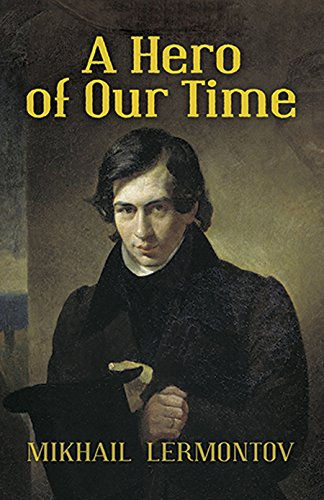
The only completed novel by Lermontov, standing at the origins of Russian psychological prose. The author called his complex, dangerous and incredibly attractive hero the embodiment of the vices of his generation, but readers notice in Pechorin, first of all, a unique personality.
"It can be seen that Russia is so created that everything in it is being renewed, except for such absurdities. The most magical of fairy tales in our country can hardly escape the accusation of attempted insult!" - Mikhail Lermontov
The book is about an exceptional person who suffers and brings suffering to others. Lermontovsky Pechorin, according to the author's preface, is a collective image, "a portrait made up of the vices of our entire generation, in their full development." Despite this - or because of this - Lermontov managed to create one of the most lively and attractive heroes in Russian literature: in the eyes of readers, his narcissism and love of manipulation does not overshadow neither deep intelligence, nor courage, nor sexuality, nor honest introspection. In an era that has almost parted with romanticism, Lermontov writes the "history of the soul" of the romantic hero and selects suitable extras and impressive scenery for his actions.
In 1836, Lermontov begins to write a novel ("secular story") "Princess Ligovskaya", the protagonist of which is 23-year-old Grigory Pechorin. Work on the novel drags on, it is interrupted by Lermontov's exile to the Caucasus after writing the poem "Death of a Poet". In the end, Lermontov abandons the original idea (the unfinished Princess Ligovskaya will not be published until 1882, 41 years after the author's death). Probably in 1838, while on vacation, he began to work on The Hero of Our Time, where he transferred not only the hero, but also some of the motives of the previous novel. The years 1838-1839 were very eventful for Lermontov: several editions of "The Demon", "Mtsyri", "Song about the merchant Kalashnikov", two dozen poems, including "Poet", "Duma", "Three Palms" belong to the same period , "Prayer". On the eve of sending the "Hero of Our Time" to the press, Lermontov will take part in a duel with the son of the French ambassador Ernest de Barant and for this he will be transferred to the Caucasus, where he will die a year later - in another duel.
The "Hero of Our Time" has a composition unique for its era: it consists of five separate stories, unequal in terms of the volume of the text and the amount of action and not arranged in chronology: we first learn a long story from the life of the protagonist ("Bela"), then we meet with them face to face ("Maksim Maksimych"), then we learn about his death (preface to "Pechorin's Journal") and, finally, through his notes ("Taman", "Princess Mary", "Fatalist") we restore earlier episodes of his biographies. Thus, the romantic conflict of a person with the environment and with fate itself unfolds almost detectively. Mature Lermontov's prose, inheriting Pushkin's, is calm in temperament (in contrast to Lermontov's early experiments, such as the unfinished novel Vadim). She is often ironic - romantic pathos, to which Pechorin resorts more than once ("I, like a sailor, born and raised on the deck of a robber brig: his soul got used to storms and battles, and, thrown ashore, he misses and languishes ..."), is verified by introspection, introspection, and romantic clichés are exposed at the plot level - this is how Taman works, where, instead of an amorous adventure with a wild “undine,” the well-read Pechorin almost turns out to be a victim of smugglers. At the same time, The Hero of Our Time contains all the components of a classic romantic text: an exceptional hero, an exotic setting, love dramas, a game with fate.
تعليقات